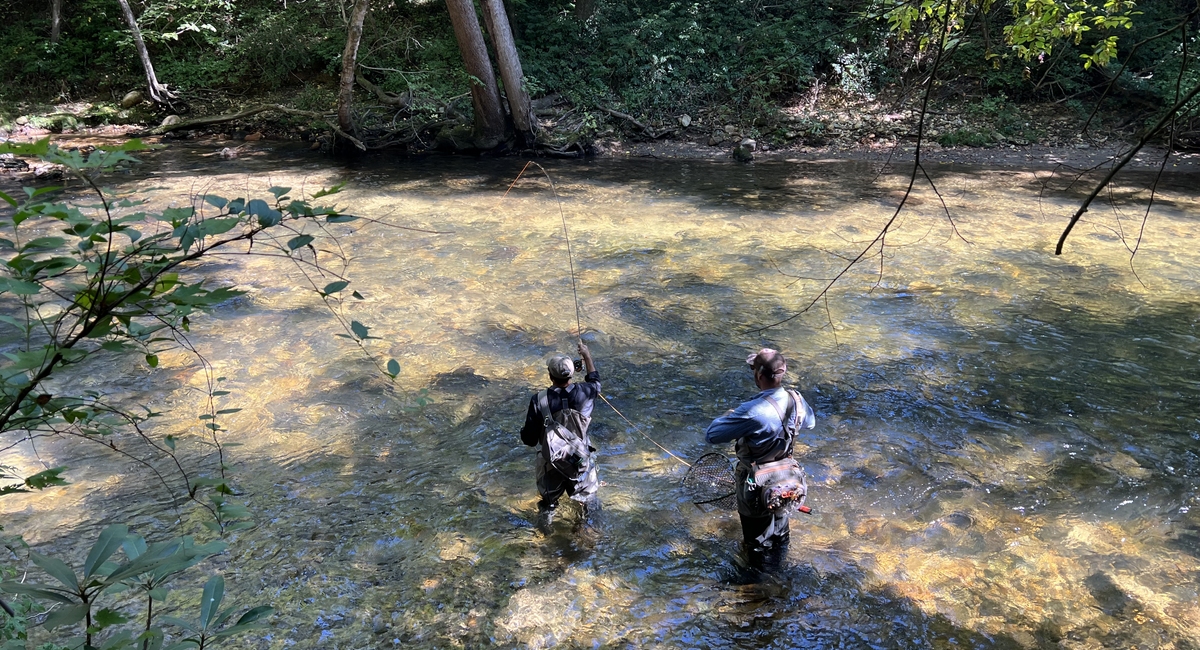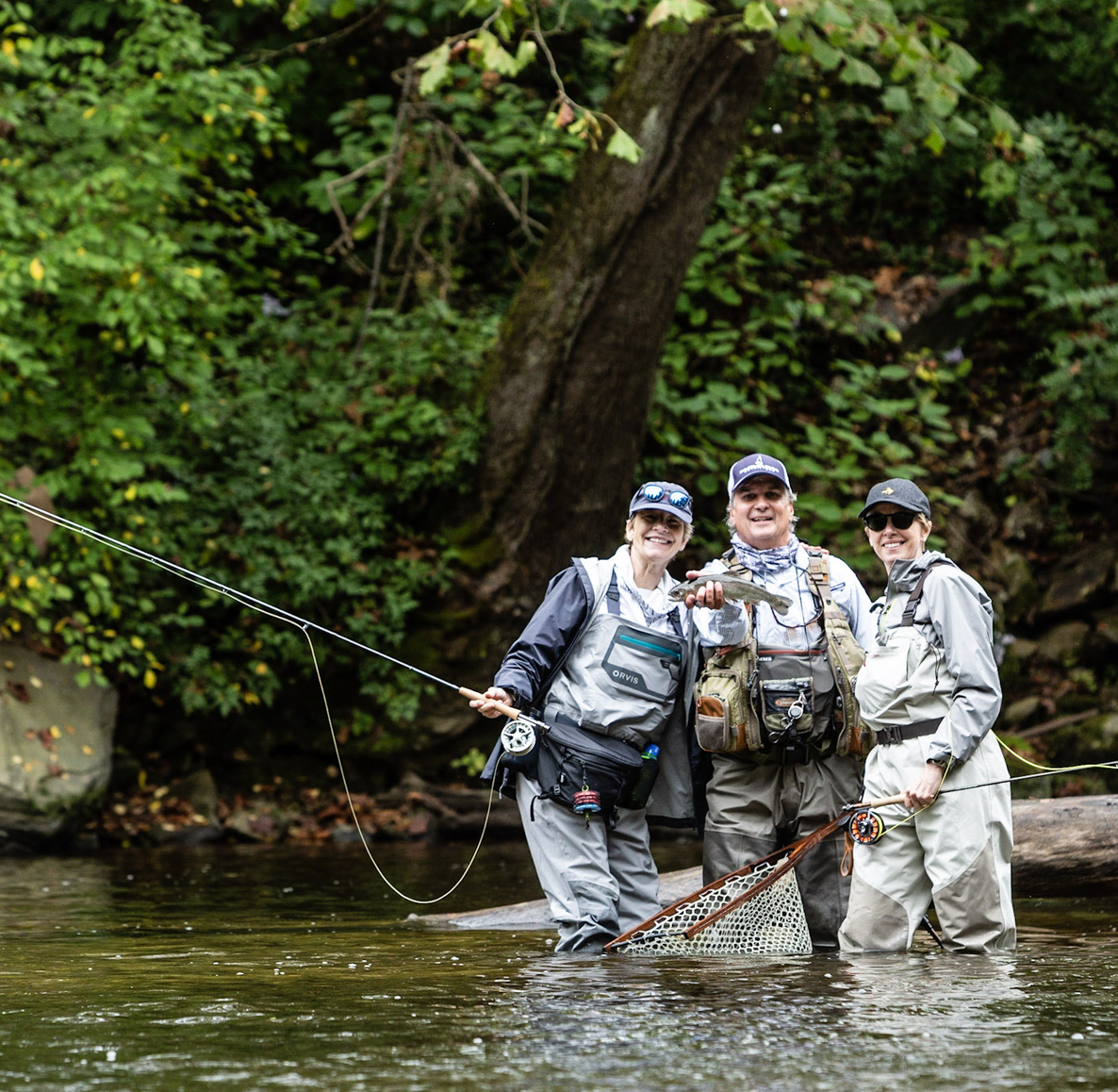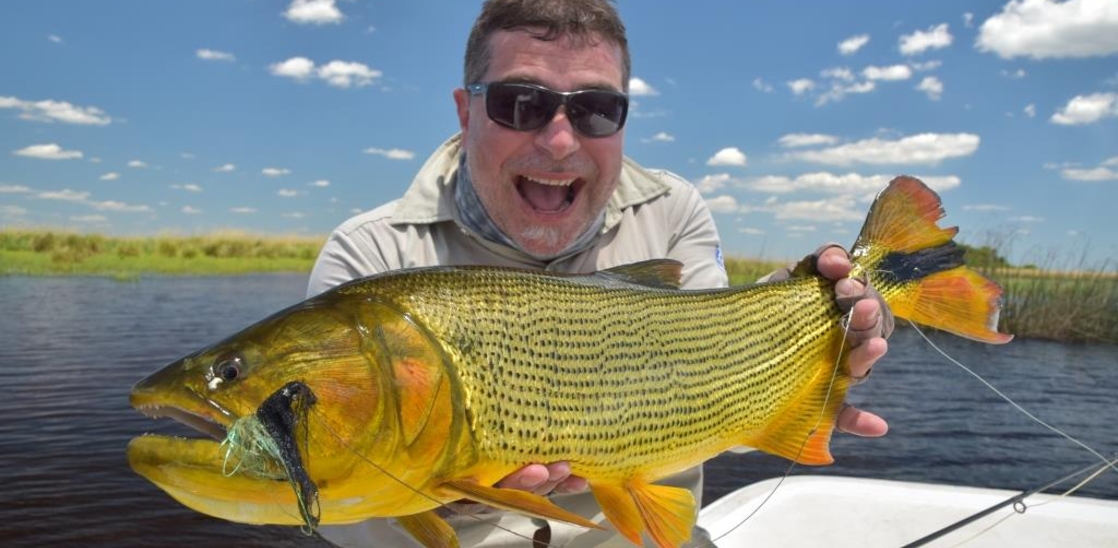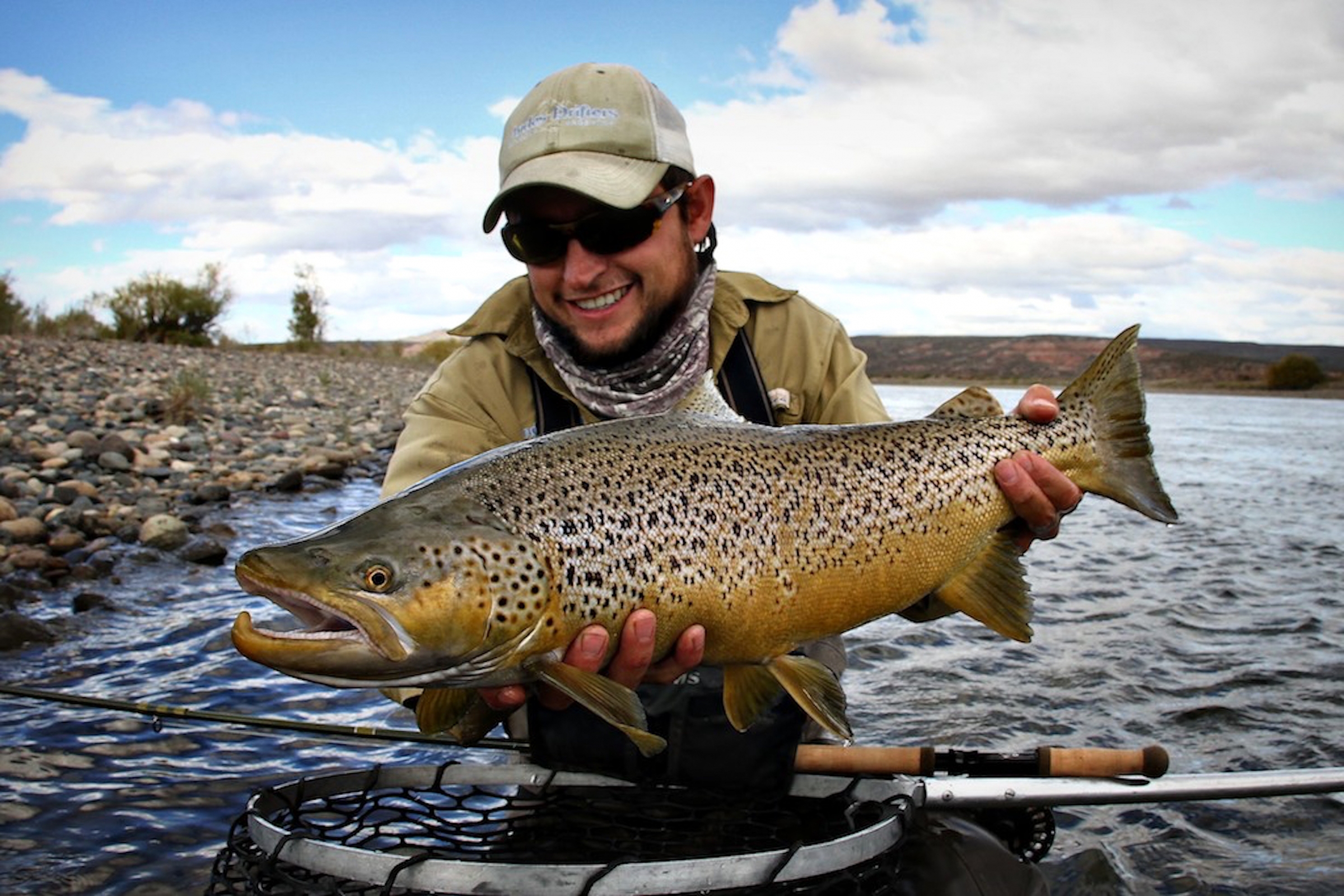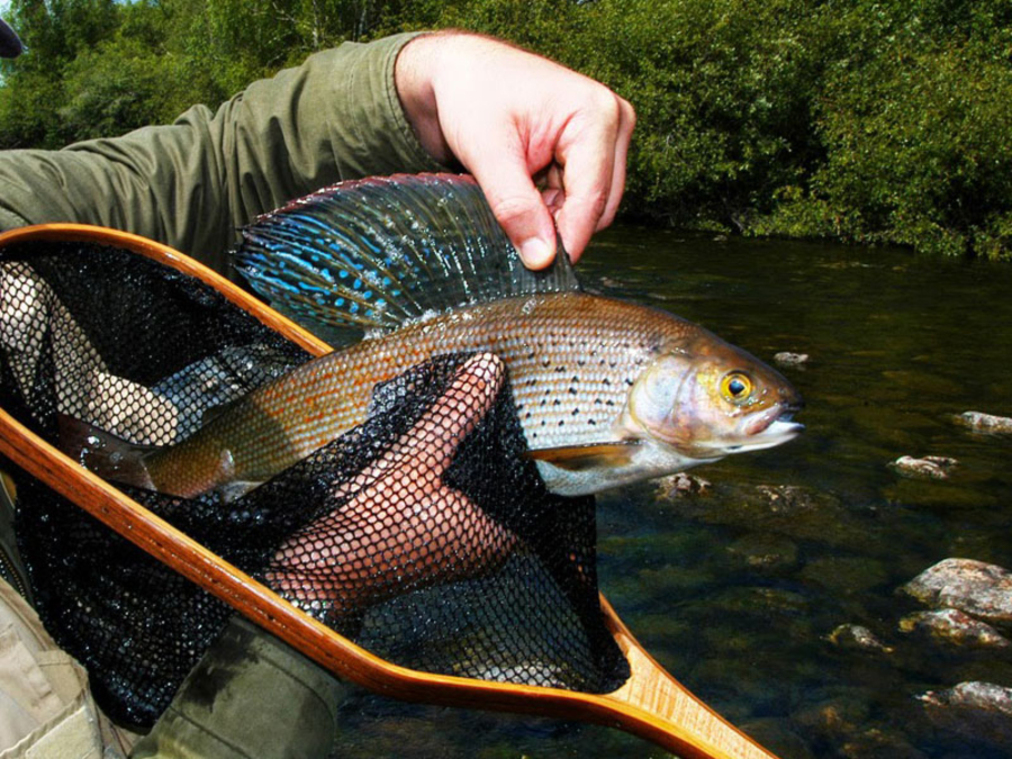Winter fly fishing in North Carolina can be a rewarding and enjoyable experience, but it does come with its own set of challenges. Here are five tips to help you make the most of your winter fly fishing trips in the Tar Heel State:
-
Dress in layers: The key to staying comfortable while fly fishing in the winter is to dress in layers. Start with a moisture-wicking base layer, then add a mid-layer for insulation, and top it off with a waterproof and windproof outer layer. This will help you regulate your body temperature and stay dry. I also will try to put on fresh socks for getting in the river. Whatever socks I wear in the truck are usually a little sweaty and will spell for cold feet as soon as I hop in the river.
-
Use a heavier rod and line: In the winter, the water is colder and the fish are less active, so you'll want to use a heavier rod and line to help you make longer casts and get your flies down to where the fish are holding. A 6-weight rod and line is a good choice for most winter conditions.
-
Fish deeper pools and runs: In the winter, the fish tend to move to the deeper, slower-moving pools and runs where the water is warmer and more oxygenated. Focus your efforts on these areas, and use flies that mimic the naturals that the fish are feeding on at this time of year, such as midges, scuds, and stoneflies.
-
Keep your flies small and simple: Winter fish tend to be less interested in flashy, complicated flies, so stick with smaller, more natural patterns that imitate the insects and other food sources that are available at this time of year.
-
Take breaks to warm up: Fly fishing in the winter can be a physically demanding activity, so be sure to take breaks to warm up and rehydrate. A thermos of hot cocoa or coffee can be a welcome pick-me-up on a cold winter day.
By following these tips, you'll be well-equipped to enjoy a successful and comfortable day of winter fly fishing in North Carolina.
Thanks,
Jason


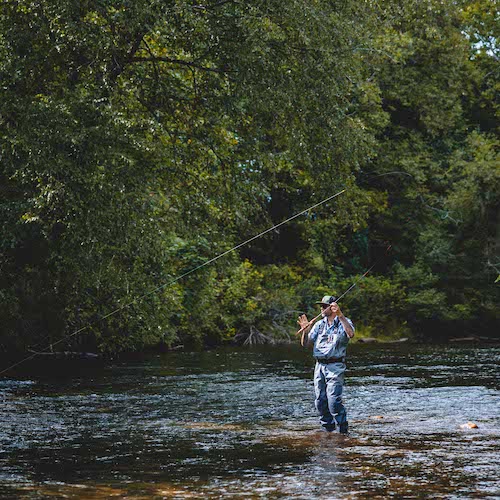 Stream Report
Stream Report Seasonal Hatches
Seasonal Hatches Stream Guide
Stream Guide